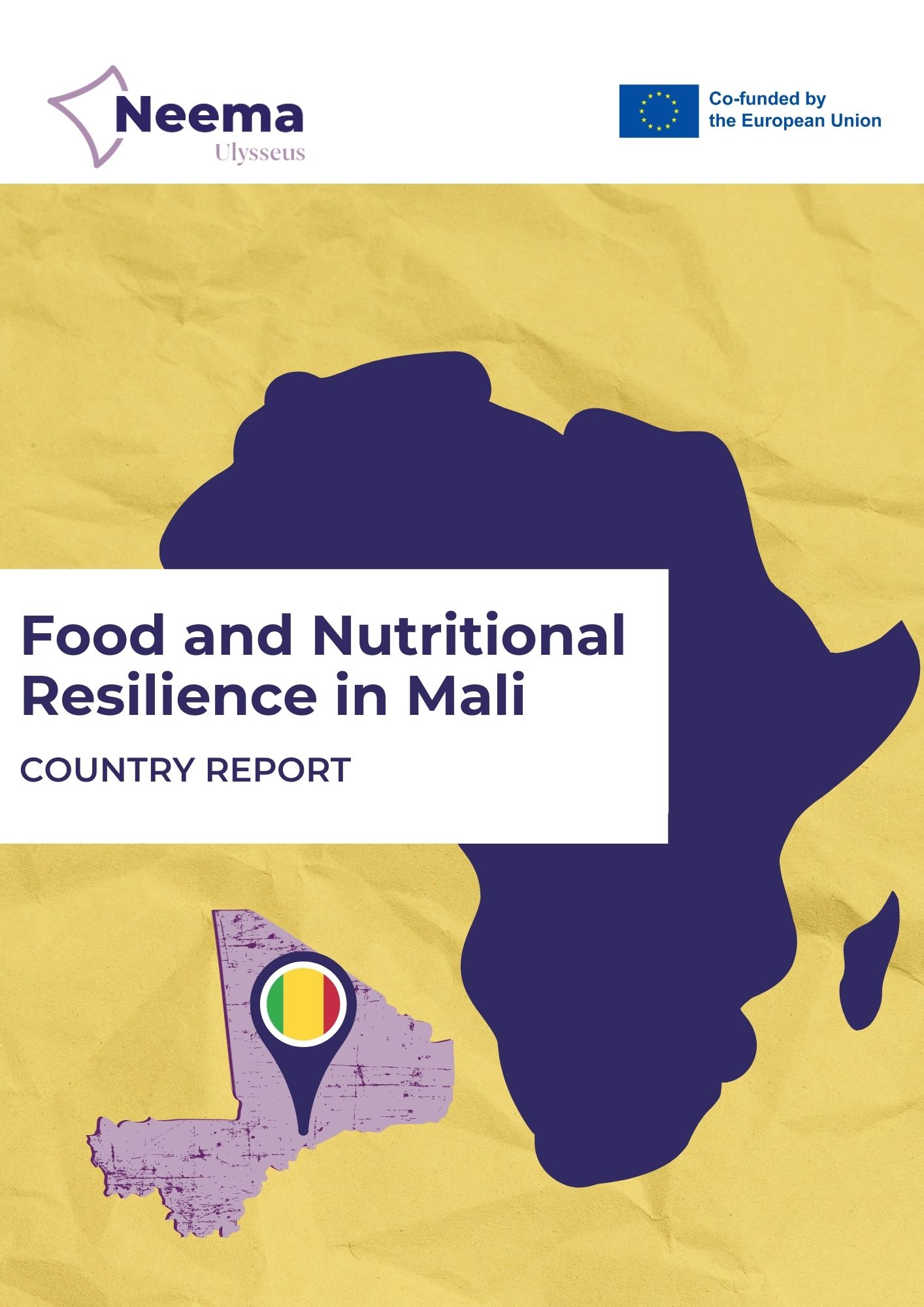NEEMA Food and Nutritional Resilience in Mali
This study explores the critical issue of food and nutritional security in Mali, a country facing ongoing challenges due to extreme poverty, natural disasters, and recurrent shocks. The study emphasizes the four dimensions of food security—availability, access, utilization, and stability—and addresses the gaps in ensuring these for all citizens. Key recommendations include enhancing sustainable food production systems, diversifying livelihood support activities, and improving coordination among stakeholders. The study advocates for strengthening governance, promoting research and development in agriculture, and improving institutional capacities to build resilience. Additionally, it calls for the protection of vulnerable communities through better social protection, climate risk management, and the recognition of food and nutrition as fundamental human rights. By implementing these strategies, Mali can work towards a sustainable food system that delivers environmental, social, and economic benefits. The study provides a roadmap for achieving long-term food security and nutritional resilience in the region.

This study sheds light on Mali’s ongoing efforts to combat food insecurity, which affects vulnerable communities across the country due to extreme poverty, natural disasters, and other shocks. With the support of international partners, Mali has developed and strengthened its National Food and Nutritional Security Policy (PolNSAN), aiming to provide consistent and sustainable access to food for all its citizens. However, there remain significant challenges in aligning these policies with the real needs of Mali’s most vulnerable populations.
This study highlights the following key focus areas:
- Dimensions of Food Security: The study is rooted in the four main dimensions of food security:
- Physical availability of food
- Economic and physical access to food
- Proper utilization of food
- Stability of these factors over time When any of these dimensions are compromised, communities face food insecurity.
- Challenges in Implementation: Despite efforts, the quality of food security interventions often falls short for the most vulnerable groups. Livelihood diversification, beyond livestock vaccination, and a greater investment in agriculture and market gardening are essential to ensure sustainable food security.
- Sustainable Food Systems: Moving towards sustainable food systems is crucial for Mali’s recovery and long-term resilience. This approach will not only enhance food security but also deliver environmental, social, and economic benefits.
To strengthen Mali’s food security landscape, the study proposes several critical actions:
- Building Sustainable Food Chains: Ensuring that food supply chains work for everyone—consumers, producers, the environment, and the economy—is a priority. This includes promoting sustainable food production in West Africa and reducing food loss and waste.
- Enhancing Livelihoods: Supporting the livelihoods of primary producers is essential, as their incomes remain too low. Efforts should focus on diversifying income-generating activities and scaling up interventions to reach a broader population.
- Improving Production and Capacity: Modernizing agricultural production techniques and building the capacities of key stakeholders, including administrative staff, consumer associations, and producers, will improve food systems. This includes better coordination and communication between farmer organizations, local authorities, and technical partners.
- Promoting Food Justice: A key recommendation is to ensure food and nutrition justiciability, meaning that every individual’s right to adequate food is recognized and protected. Establishing a legal portal on food and nutrition laws and involving communities more in policy-making can support this effort.
- Strengthening Research and Governance: Supporting ongoing research on food and nutrition issues and improving governance through policy and institutional reforms will enhance Mali’s ability to respond to future challenges. Coordination between sectors, promoting sustainable agriculture, and managing climate risks are essential for building resilience.
By aligning national policies with real-world needs, diversifying livelihoods, and fostering collaboration among stakeholders, Mali can build a more resilient food system. This study offers practical steps towards achieving sustainable food security and improving the lives of vulnerable communities.
Read the full study to explore in-depth analyses and a roadmap for Mali’s food security future.






